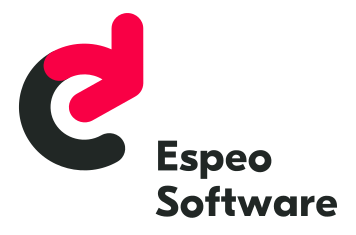Sports clubs are slow to adopt new technologies. For an industry with such influence, recordkeeping and commission management standards lag far behind other sectors. This drives costs up and slows recruitment. Blocsport.one is changing the way clubs scout and recruit players from around the world, and how athletes can upload and secure their data.
A distributed ledger secures player data and establishes a career history for players, talent scouts and clubs alike. The platform allows clubs to recruit players directly, cutting out dubious middlemen who can complicate recruiting. It also allows smaller clubs to collect solidarity payments — a type of commission — for players as they progress in their careers.
Its distributed ledger performs several key functions in the application — primarily saving players’ ID information, establishing a record of clubs athletes have played for, and creating a directory of available players. Blocsport.one uses a ledger built on Hyperledger Fabric, which Espeo developers designed and implemented. The solution adds more transparency to the sports world and makes it easier for clubs to keep accurate records, collect commissions and recruit players.
Business challenge
Sports are big businesses — ones that rely on a steady stream of talented young athletes from across the world. Scouting players and signing them to play professional sports in Europe remains a challenge for clubs and talent scouts. Each national football federation may have different recordkeeping standards often making it difficult to verify player data — especially age.
This has very real consequences for clubs if it emerges that the players are older than they claim. Older athletes don’t heal from injuries as quickly and clubs can get fined for passing older players off in youth leagues. To join Blocsport.one, players have to verify their age with official documents, but once they go through a KYC procedure, their birth data can’t be changed.
Another challenge Blocsport.one addresses is handling solidarity payments. These are the commission fees clubs and other associations pay to previous clubs a player trained at before being recruited. It keeps a record of a player’s career history. Currently, solidarity payments require a lot of manual paperwork and auditors and lawyers to enforce. With a distributed ledger, this cuts down the time to figure out which clubs to pay and establishes a transparent record for everyone in the network. This is a key feature of a private blockchain — commission management among businesses that may not fully trust one another.
Blocsport.one founder Tomasz Krzystek explained that these solidarity payments pose a significant challenge to smaller clubs.
“Solidarity payments right now are done in a very manual way. You don’t have mechanisms to track a player and to show everyone in the world that he really played for a club. Small clubs suffer because they need to prove that a player was registered and they don’t get these payments in an automated way. We want to show to the world that we can track a player and automate certain processes.”
Having accurate records to work with and better commission management means that the overall sourcing of talented athletes is a much easier process. Blocsport.one tames some of the chaos of the sports world through more transparency. A distributed ledger helps remove some of the middlemen and cuts red tape. Clubs and players alike benefit from having an immutable recordkeeping system. Better processes extend more opportunities to players who might otherwise have aged out of recruitment.
Clubs also gain better cashflow from more solidarity fees. These improvements in efficiency can be a valuable tool for athletes and the sports clubs that recruit them.
Technology challenge
At its core, Blocsport.one uses a distributed ledger built on Hyperledger Fabric. This poses some unique challenges mostly in network building. For any Hyperledger-based application, developers have to create networks from scratch and decide with clients about the rules of the system.
The main goal for our developers was to create a database that saves player data. While the backend uses a blockchain, the frontend has to be user-friendly and intuitive. A modern responsive design is easy to use and interacts seamlessly with the underlying private permissioned blockchain.
Project goal
Espeo’s goal was to design and deliver a working app that saves player data and helps track commission payments. The blockchain backend helps secure this data and organize it in one platform. As with all Hyperledger Fabric projects, app data is distributed to everyone who runs a node so no one entity can change the data.
Krzystek imagines that every association might run its own node and share data on players they trade among themselves. Part of the reason why he decided on Hyperledger Fabric is that it’s permissioned. Network participants can decide which data is viewable and which is not. For example, a club might want to show that they’ve acquired a new player, but not the details of the contract. Football’s international governing body FIFA may also run a node and would be able to see transactions from all the clubs and associations in its orbit.
“If, for example, you have Manchester City recruiting someone from Barcelona,” said Krzysek, “you can show to the world that the transaction took place, but the details of the contract would only be visible to FIFA, for instance.”
FIFA could then record the transaction and register it in their system. Blocsport.one offers a better system and delivers value through sound data and immutable recordkeeping.
Solution
Blocsport aims to be a vital tool for scouting football players from across the world and automating much of the administrative burden of doing this. As with many blockchain projects, the ultimate goal is to cut out middlemen, improve recordkeeping, and build in more transparency in its target market. Blocsport aims to bring FIFA and other football associations into the modern era. Using technology to improve their business model will be beneficial to clubs, players and the association as a whole.
Distributed ledger technology underpins the solution adding transparency and immutability to how data is collected and shared. The football world is slow to change, but with real technological solutions, they can greatly streamline their business model.
Related posts:


